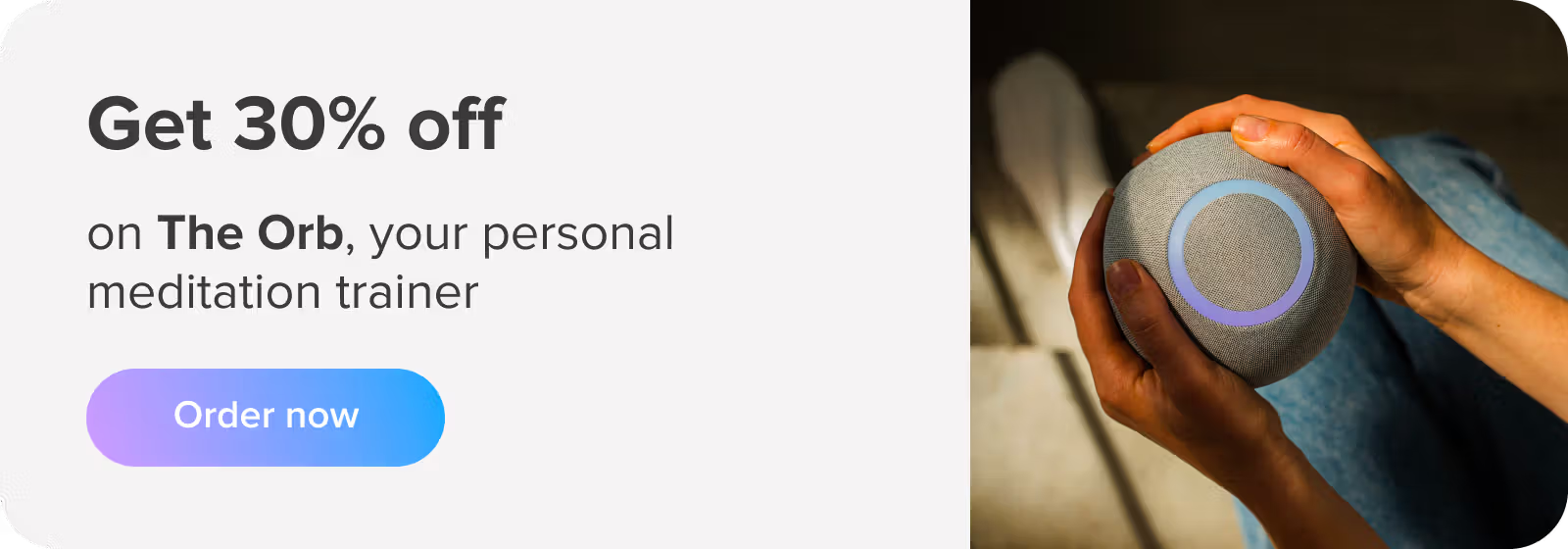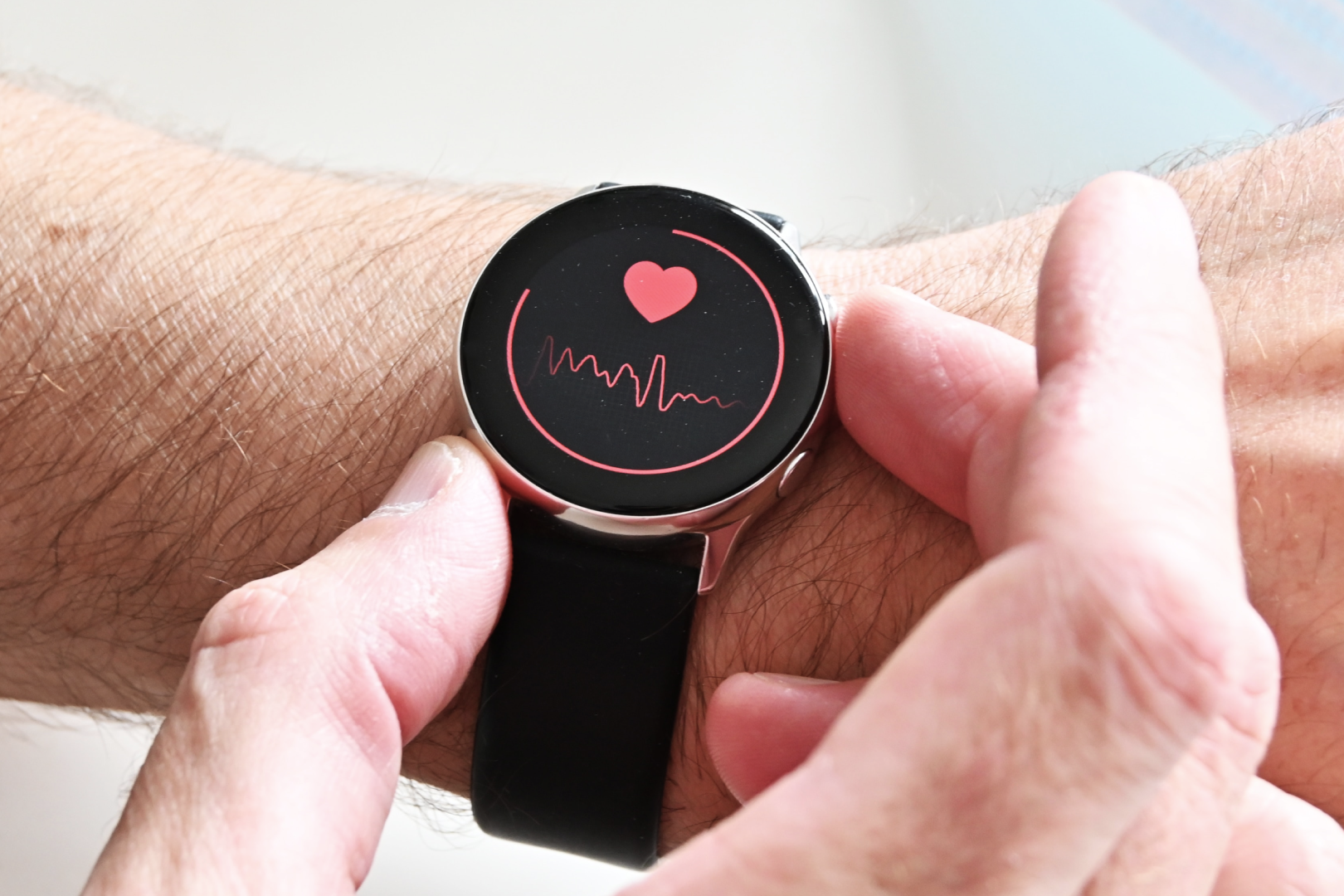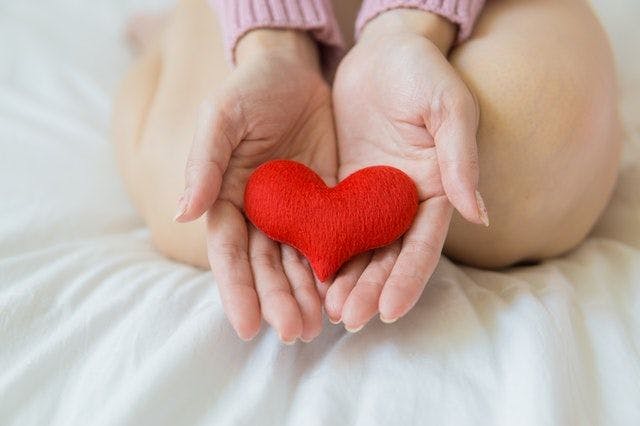Your heart rate tells a lot about your physical and mental state. Yet most of the time, you won’t even notice it.
That’s because heart rate is controlled by your autonomic nervous system (ANS), which controls many of the body’s “automatic” functions without your conscious awareness.
When you run up the stairs, your body’s demand for energy and oxygen increases. The heart must work harder to pump blood faster throughout the vascular system to support those needs. This causes your heart rate to rise.
Rapid heart rate occurs not just in a state of physical exertion, but also during emotional arousal, both positive and negative. For example, your mobile phone rings and you see that your crush is calling. OMG! Your brain instructs the body to release adrenaline, which causes sweaty palms, rapid breathing, increased blood pressure, and a faster heart rate.
Fluctuating heart rate in response to physical and emotional triggers is completely normal. However, when a person is under long-term stress or suffers from an acute stress disorder such as panic attacks, increased heart rate can occur frequently. This puts extra strain on the cardiovascular system, which can build up over time and reduce heart health.
A healthy heart rate is important for both physical and mental health. Let’s take a look at some techniques and natural remedies to slow heart rate and achieve a more balanced state:

Deep breathing
The best way to lower heart rate immediately is by breathing slowly and deeply. Why? It’s simple. Increased heart rate means the heart is working harder and pumping more blood in the body. This demands more oxygen, so the breathing rate increases to provide that oxygen to the bloodstream.
Deep breathing is a powerful and quick technique to counteract the “fight or flight” response that triggers the parasympathetic nervous system to increase the heart rate. In particular, inhaling increases the heart rate while exhaling decreases it, so the breathing exercise should focus more on the exhale than the inhale.
Here’s how to do it: breathe in through the nose to the count of three, filling the lungs deeply, hold for two seconds, and then release the breath slowly through the mouth to the count of five. Repeat five times. This will bring the heart rate down and reduce blood pressure as well.
This technique is easy, requires no special equipment and you can do it anywhere – at work, in the car, or whenever you need a surefire way to instantly reduce heart rate.
Exercising frequently
Heart rate is a good indicator of fitness. If you are fit, your heart rate won’t rise as much or as quickly in response to physical exertion; if you are unfit, it will. Resting heart rate is an important measure of cardiac health and overall fitness. A normal heart rate when you are not exerting yourself is anywhere between 60 to 100 beats per minute. A lower resting heart rate indicates a higher level of fitness.
Frequent exercise is incredibly important to reduce your resting heart rate and boost cardiac health. Regular physical activity works the heart muscle, making it stronger and healthier. This means the heart can pump more blood with each beat, lowering the resting heart rate over time.
During exercise, the body releases endorphins, the “feel-good” hormone, which enhances the nervous system and its ability to cope with stressors. Endorphins also boost mood, which promotes relaxation and leads to a slower heart rate. With regular exercise, the body and mind achieve an equilibrium that contributes to a lower heart rate and an increased sense of calm and well-being.
Limiting alcohol intake
Alcohol can interfere with the heart’s electrical activity and is known to trigger an increase in heart rate. For people who enjoy the occasional drink, this is not usually a problem. Heavy or frequent drinkers can experience rapid heart rate or even AFib (atrial fibrillation), a condition in which the heart rate increases drastically and becomes disordered.
Alcohol also has a dehydrating effect. This causes the blood to reduce in volume and become more viscous, and the heart has to work harder to circulate blood through the body – which leads to increased heart rate. Reducing or avoiding alcohol is a good way to prevent this from happening.
Alcohol has a stimulating effect on the nervous system too, which increases heart rate, among other things. Limiting alcohol intake and taking a mindful approach to alcohol consumption are two of the ways to lower heart rate and promote cardiac health.
Eating a nutritious diet
You are what you eat, and that goes for heart rate too!
A diet rich in fruits, vegetables, whole grains, and lean proteins provides essential nutrients that promote heart efficiency. Nutrients like potassium and magnesium contribute to balanced electrolyte levels, helping maintain a steady heart rate. Omega-3 fatty acids found in fatty fish have anti-inflammatory properties, which positively impact many bodily functions, including heart rhythm.
Being overweight puts greater strain on the heart and circulation, which leads to increased heart rate. A healthy, nutritious diet is essential to maintain a healthy body weight, which is a cornerstone of heart health and a lower heart rate.
Getting enough sleep
Sleep is an essential pillar of health, providing the body with the opportunity to rest and repair.. During sleep, the body relaxes and physiological processes slow down, including heart rate. Heart rate during deep sleep can drop as much as 20% to 30% below resting heart rate. Additionally, sleep supports healthy metabolic processes, helping to control factors like blood pressure and weight that influence heart rate.
When sleep is chronically disturbed, every aspect of health, both physical and mental, is affected. Insomnia is closely linked to anxiety, and people who don’t get sufficient quality or quantity of sleep are more likely to suffer from anxious symptoms, including high heart rate. The bottom line, adequate sleep enhances the balance of the autonomic nervous system, helping to keep the heart rate at a healthy, lower level during periods of relaxation, reducing unnecessary strain on the heart and promoting cardiac health.
Getting outdoors
Studies show that spending time outdoors improves health and well-being. In fact, spending 20 minutes in nature is proven to lower levels of stress hormones in the bloodstream. A calmer, balanced parasympathetic nervous system is one of the keys to lowering heart rate, so it is important to get outdoors every day for even just a short period of time.
Besides the calming effects of nature, spending time outdoors encourages physical activity, be it a leisurely walk or an invigorating hike. Regular movement strengthens the heart muscle, enhancing cardiac function and contributing to a lower resting heart rate.
Exposure to natural sunlight boosts vitamin D production in the body, which is important for overall health and heart health too. In addition, spending time in the majesty of nature helps promote mindfulness and a healthier perspective, boosting emotional regulation and a more balanced heart rate response to external stimuli.
Practicing relaxation techniques
Learning how to lower heart rate is a key to controlling the symptoms of anxiety and other mind-body disorders. During an anxiety attack, the body goes into “fight or flight” mode, and the heart rate increases.
This leads to rapid breathing and can cause lightheadedness, tingling and numbness in the hands and feet, and other scary and uncomfortable symptoms. Knowing how to lower heart rate instantly can quickly curb the symptoms of anxiety and prevent falling into an anxiety spiral before it gets out of hand.
Practicing relaxation techniques such as deep breathing, meditation, and progressive muscle relaxation, is important to calm the parasympathetic nervous system and reduce the symptoms of anxiety, including lowering the heart rate.
Biofeedback is particularly effective as a relaxation technique for lowering heart rate. During a biofeedback session, the individual can see how their heart rate increases and decreases in response to particular triggers. With this knowledge, they can learn how to consciously respond to everyday stressors, and maintain a healthier heart rate overall.
With the Reflect device, you can practice biofeedback in the comfort of your home, without having to apply sensors to the body. Just place your hands on the Reflect Orb, and your heart rate is tracked directly through the skin.
By making relaxation techniques part of the daily routine, you can achieve a higher level of overall calm and well-being, which over time will lead to reduced heart rate and healthier heart functioning.
How to lower pulse, immediately
While a rapid heart rate is often a normal response, chronic anxiety and stress can lead to a chronically high heart rate, and that is not good news for cardiac health.
When you are feeling triggered and your pulse shoots sky high, it is important to have tools and techniques at hand to lower your heart rate quickly and prevent the negative impacts on your health and well-being.
Try the deep breathing technique described above to lower your pulse immediately, and follow the healthy lifestyle guidelines to reduce chronic anxiety and promote a lower heart rate in the long term. That’s great news for your heart, your body, and your mind.
FAQs
Q: How to prevent a fast heart rate
If you are doing strenuous physical activity, it is normal to expect the heart rate to rise. However, it is important to prevent a fast heart rate in response to chronic stress, as this can accumulate over time and impair heart health.
You can prevent a fast heart rate by exercising regularly to boost cardiac fitness, avoiding foods and other substances that trigger high heart rates, and practicing relaxation exercises on a regular basis to promote physical and mental calm and improve the balance of the nervous system.
Q: Can dehydration affect pulse rate?
When the body is dehydrated, blood volume decreases and the blood takes on a denser, viscous composition. The heart has to work harder to pump blood around the body, leading to an increased heart rate and elevated pulse. It is important to stay properly hydrated to maintain a healthy heart rate.
Q: How long does it take for deep breathing to lower pulse rate?
How to lower your heart rate immediately? By practicing deep breathing. Deep breathing exercises are the fastest, easiest, and quickest way to lower an elevated pulse rate. Deep breathing can lower pulse rate in a matter of minutes. Any time that you feel your heart rate rising due to stress, take a few minutes to practice deep breathing, with a particular focus on the slow exhale. You will feel your heart rate come down almost immediately.
Q: Can caffeine and alcohol affect pulse rate?
Caffeine and alcohol are stimulants, which means they trigger a heightened response from the nervous system. This can cause a jittery nervous feeling, excitability, and an elevated pulse rate.
Some people are more affected by coffee and alcohol than others; people who are sensitive may notice their heart rate increasing after consuming these substances. People who want to lower their heart rate, or those who are strongly affected by caffeine and alcohol, should reduce their intake or avoid them altogether.
Q: When should I seek medical help for a high pulse rate?
In many instances, a high pulse rate is normal, such as during strenuous exercise or times of heightened emotion. However, the heart rate should quickly recover and return to a resting rate of between 60 to 100 heartbeats per minute after the exercise or emotional episode has passed.
Rapid or erratic heart rhythms can be a sign of a serious medical disorder, so it is vital to consult with your doctor if you notice that your pulse rate is high or unusual.






